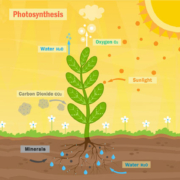Is Protein Bad? The Research
Let’s think about this logically. If we wanted to prove that a high-protein diet would decrease lifespan, we would have to feed some type of animal a diet high in protein until all the animals had died. It would be preferable to have animals that don’t live very long such as rodents. Then we compare the lifespans and causes of death with a control group. Simple and straightforward.
That’s not what the research group did. As I said in Tuesday’s Memo, they identified an enzyme called eukaryotic elongation factor 2 kinase (eEF2K) that slows the rate of protein synthesis. That enzyme is also found in C. elegans, a nematode, as well as in fruit flies and humans. They knocked out the eEf2K enzyme, therefore causing protein synthesis to happen faster. This is supposed to be what happens when too much protein is eaten. They noted more mistakes in protein synthesis as a result.
The methodology for this series of experiments is beyond my expertise. By a lot. Whether the research was on cancer cell lines, the nematodes, or the fruit flies, what I could not find in the Methods section is where they added protein or amino acids to the food for any culture or animal to mimic a high-protein diet. I wrote to the study’s lead author to see if my analysis was correct, but I haven’t gotten a response yet.
What does all this mean? I’ll wrap it up on Saturday.
What are you prepared to do today?
Dr. Chet
Reference: Cell Biology 2019. https://doi.org/10.1016/j.cub.2019.01.029/






 AllOfUsPeople
AllOfUsPeople

